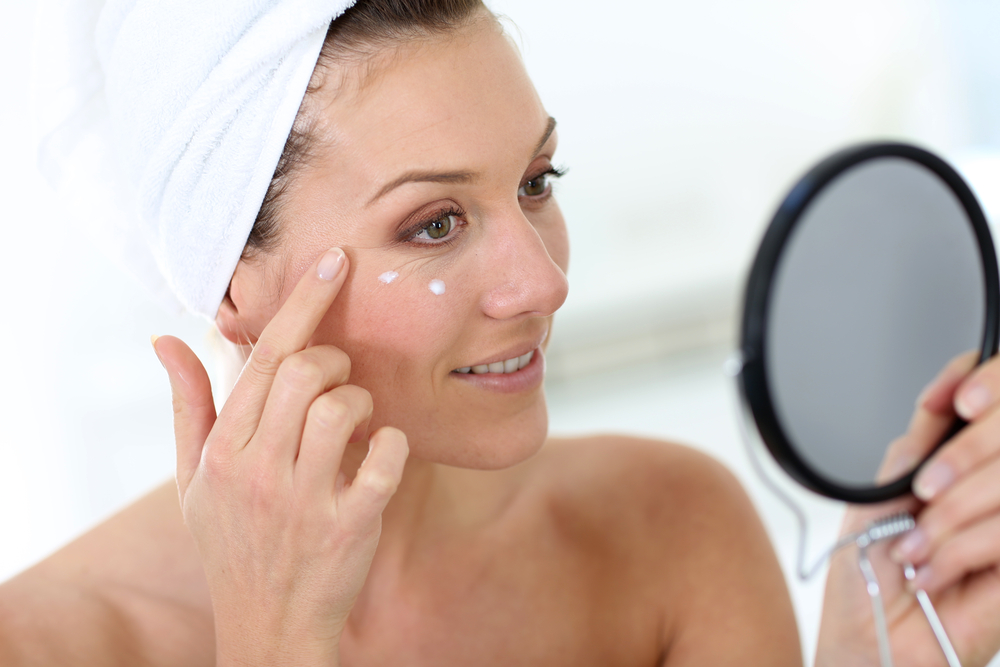So you’ve decided to spring for that facelift, breast augmentation or rhinoplasty you’ve been dreaming about for years. Once the bandages come off, your insecurities will vanish, right? Not necessarily. Sadly, there is a much studied but little talked about phenomenon known as postoperative depression, a condition that can befall anyone, with or without a history of mental illness, and the consequences can be severe.
Postoperative Depression
Postoperative depression, sometimes called postsurgical depression, is the feeling of overwhelming malaise that can accompany post-surgical recovery. It shares the same characteristics as other forms of depression but its onset is linked to the surgery itself.
A 2009 study published in the Journal of Evaluation in Clinical Practice examined 56 patients undergoing hip or knee replacements. It concluded that of those 56 patients, roughly 50% of them experienced depression “at some point” before being discharged from the hospital. Similarly, a 2012 study in the Journal of Geriatric Cardiology noted that roughly 50% of heart surgery patients experience depression during recovery.
Postoperative Depression and Cosmetic Surgery
Despite all of the evidence linking depression to surgery, many prospective patients still don’t believe it applies to cosmetic surgery.
It’s possible they assume that the elective nature of the procedure and its usually positive outcomes somehow insulates them from the negative experience associated with recovery from other kinds of surgery. However, many plastic surgeons warn patients to heed these concerns and be vigilant for symptoms of depression.
The link between cosmetic surgery and a predisposition to psychological issues is, in fact, well-documented. A 2007 study in Psychiatry carefully tracked the relationship between depression, Body Dysmorphic Disorder (BDD) and cosmetic surgery. It concluded that patients who have sought or undergone cosmetic surgery were more likely to suffer from these or similar psychological conditions, putting them at greater risk of continued psychological disturbance, low self-esteem and even suicide.
When considering the factors that put an individual at greater risk for postoperative depression, a history of depression is, unsurprisingly, a huge one.
Given the outcome of cosmetic surgery is, more commonly, anticipated with excitement and viewed as positive, why do so many patients experience such a dispiriting, discouraging and negative recovery? The answer to this question is more abstruse than we might like. Our emotions can be influenced by, among other factors, diet, sleep patterns, and the medications we consume. But while depression can manifest itself in a lack of sleep and poor appetite, these symptoms can also be a side effect of certain postoperative pain killers. Therefore we’re left to wonder: If you’re depressed and unable to sleep, is the depression at fault or is it the other way around?
This chicken and egg conundrum is confusing enough under normal circumstances. But when we factor in anesthesia, postoperative pain medication, discomfort and lack of mobility, it becomes that much more challenging to determine whether it’s the depression holding us back or if our physical symptoms and limitations are the culprits.
In either case, the following lists some key elements that potentially influence postoperative depression:
- Anesthesia
- Post-surgery pain medication
- Physiological side effects from surgery (pain, swelling and bleeding)
- Immobility or inability to get out of the house (this becomes a greater factor with longer recovery times)
- Lack of support in general
- Compromised independence from having to rely on others for help with even the most minor activities
- Disappointment with the results of one’s surgery and continued dissatisfaction with a particular physical feature
Risk Factors for Postoperative Depression
No two people are exactly alike and one person’s response to a breast augmentation or lift will not necessarily reflect that of another person who has undergone the same cosmetic procedure. While anyone can fall victim to postoperative depression regardless of medical history, some people are definitely more at risk than others.
A 2004 study published in Plastic & Reconstructive Surgery closely examined the psychological outcomes of plastic surgery. The study concluded that “factors associated with poor psychosocial outcome” include:
- History of depression or anxiety
- History of BDD
- Age (Youth)
- Gender (Male)
- Surgeries motivated by the hope of improving a relationship
The aspects listed above are open to interpretation. It’s possible that men, being more stoic about their decision to have plastic surgery, are more inclined to internalize any frustration or disappointment. Younger plastic surgery patients may have less realistic expectations for the procedure’s outcome. Those motivated by relationship troubles may be misguided about their reasons. And so on. What we can extract from this is that there are ways to identify those at risk thus allowing them the opportunity to receive help before postoperative depression can commence.
Symptoms of Postoperative Depression
Before we go into strategies for preventing and managing the postoperative type, let’s apprise ourselves of symptoms commonly associated with depression in general. Recognizing these symptoms is the first step in being able to tackle the problem before it settles in and makes itself at home.
This list comes directly from the National Institute of Mental Health (NIMH). Just as a reminder: When discussing postoperative depression, it’s important to note that some of these symptoms could be caused by other elements (i.e., medication).
- Persistent feelings of sadness, anxiety, emptiness or despair
- General irritability
- Feelings of guilt or worthlessness
- Loss of interest in once enjoyed activities
- Fatigue or restlessness
- Trouble with concentration and memory
- Sleep abnormalities (too much sleep or not enough)
- Loss of or abnormal increase in appetite
- Suicidal thoughts
- Aches and pains
If you’ve recently undergone surgery and are concerned about any of the symptoms above, talk to your doctor. It’s possible they can be alleviated by changing your medication, or simply with the passage of time. It’s important to be aware of how you feel and not be afraid of learning why you feel the way you do.
Preventing Postoperative Depression
Now that we know what it is, what it looks like and who is at the greatest risk for it, it’s time to talk strategy. There are things you can do before surgery to lower your risk of the depression that might come afterward.
- Realistic expectations. Discuss your goals at length with your cosmetic surgeon. Make sure you are both on the same page and that you understand that a nose job won’t turn you into a supermodel. Addressing unrealistic expectations can prevent disappointment and dissatisfaction later on.
- Right reasons. Recognize that surgery as a means of repairing a relationship is a risk factor. If you elect to go for cosmetic surgery, do it because you, and only you, want to change something about your physical appearance. Don’t ever do it for another person.
- Support network. Some people may want their surgery kept secret. However, it’s highly recommended that you share the experience with someone you trust so someone close is aware of what’s going on and can help out should you experience any unexpected challenges in recovery.
- Medical history. If you have a history with depression or BDD, you may feel tempted to keep it a secret out of fear that a surgeon may not feel comfortable treating you. A history of either is not necessarily a dealbreaker. More likely, the surgeon will ask you to undergo a psychological evaluation to make sure you’re prepared for the procedure and that your intentions are realistic and sincere.
- Recovery. The more informed you are about the recovery process — how long it will take and what it’s comprised of — the less likely it will discourage you. For example, if your face is still bloated and bruised a week after surgery, understanding that it’s a normal stage in the healing process will eliminate unnecessary anxiety.
If postoperative depression is a valid concern for you, mention it to your surgeon beforehand. They can provide you with strategies and resources to help you best manage yourself throughout the process.
Don’t Be Disheartened
The operative word in cosmetic surgery is “surgery.” Like all other forms of surgery, it comes with risks, side effects and recovery time. Make sure to take cosmetic procedures seriously, from being honest with your surgeon about your goals, motivations and medical history to following all of your surgeon’s postoperative instructions. This will lower your risk of frustration, disappointment and depression.
That being said, depression may still come over you. If it does, don’t take it as a sign the procedure was a failure. Don’t assume that because you’re depressed, you regret having it done. After all, someone with depression following heart surgery won’t regret having had life-saving surgery. Depression is its own separate issue and will pass with treatment and time. Once you come out of the fog, you can be confident that the person staring back at you from the mirror sees you as clearly as you see yourself.









